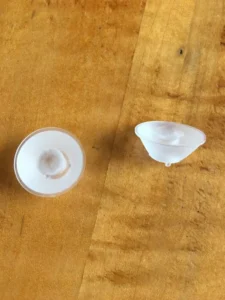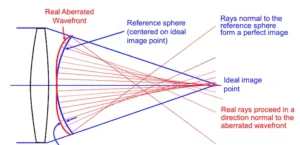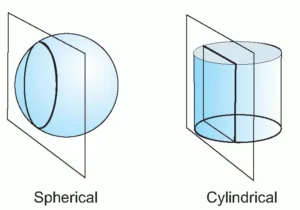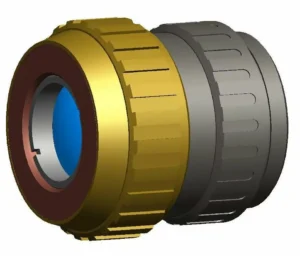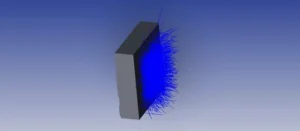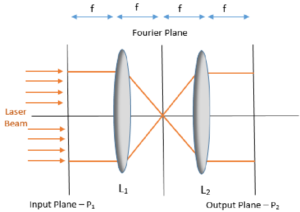Depth of field is a distance range where the image optical resolution is as high as possible for that lens, i.e. an image appears to be in focus. When starting a lens design program, having a good understanding of this parameter’s physics will help you and your consultant achieve the best possible design.
In this video, we explain depth of field in more detail.
‘Circle of confusion’ and depth of field
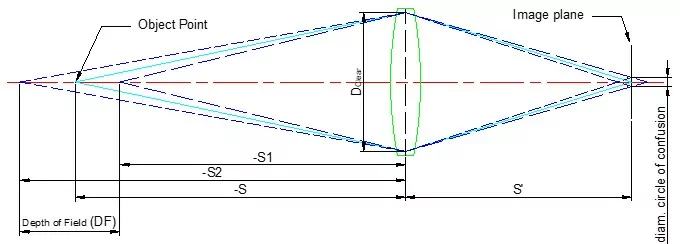
- Real system can’t form an ideal image of the Object Point due to physical and manufacturing limitations. Object point images into a spot with a diameter named “Circle of confusion”.
- A larger circle of confusion means larger depth of field
Key formula
Depth of Field: DF=(2f^2 S^2 Nd_c)/(f^4-N^2 (d_c )^2 S^2 )
Where dc – diameter of circle of confusion
f-focal length
N=D/s – effective apertureS= Object distance
Simplified formula
For distant object where S is much larger than f then S’=f and formula of Depth of Field :
DF=(2S^2 Fd_c)/f^2
Alternative formula
F=D/f – relative aperture
The distances to near and far zone of DF
S1=(Sf^2)/(f^′2+Fd_c S)
S2=(Sf^2)/(f^′2-Fd_c S)
Sources of ‘Circle of confusion’
1. Diffraction
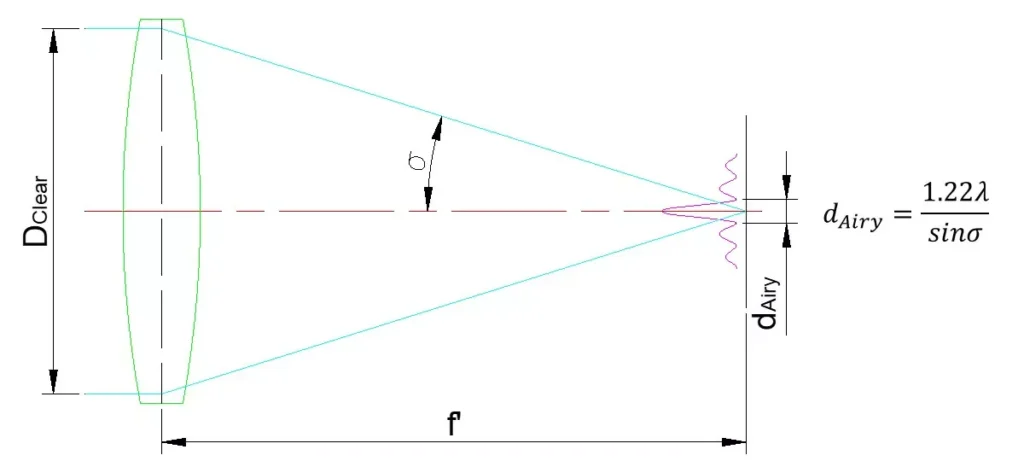
Diffraction limits
- Because of finite aperture of optical system, optical systems have a limit of Airy diffraction pattern.
- Diameter of circle of confusion correspond to width of central maximum of Airy diffraction pattern.
- Therefore d_c=d_Airy
2. Aberrations
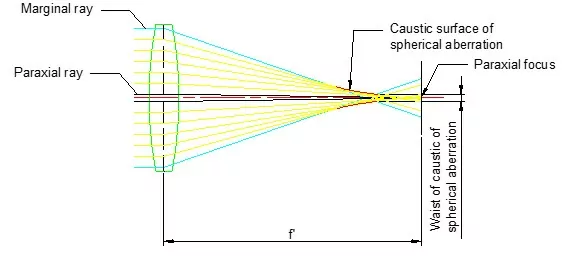
Abberations
- Residual aberrations result in blurring of the point image.
- Residual spherical aberrations result in different point of intersection of rays going through different aperture height. Rays intersecting which each other form a Caustic surface with waist. The waist diameter corresponds to the Circle of confusion.
d_c=d_Waist
3. Pixel size

sensor resolution
- All image detectors have a particular Pixel size.
- The diameter of the Circle of confusion corresponds to pixel size.
Pixel size.
d_c=d_Pix
Finite size of pixel results in Depth of focus (Df) in image space.
Summary
- Depth of Field is an inherent property of a real optical system because of physical and technological limitations.
– DF depends on 1st with F-number
– DF depends on 2nd order of object distance S
- Real systems have different correction of residual aberrations and aperture value. Circle of confusion depends on most influencial factor, either diffraction, residual aberrations, or pixel size. For example, a microscope lens has very small residual aberrations and DF depends mostly on diffraction.
Need assistance designing a custom optic or imaging lens ? Learn more about our design services here.
